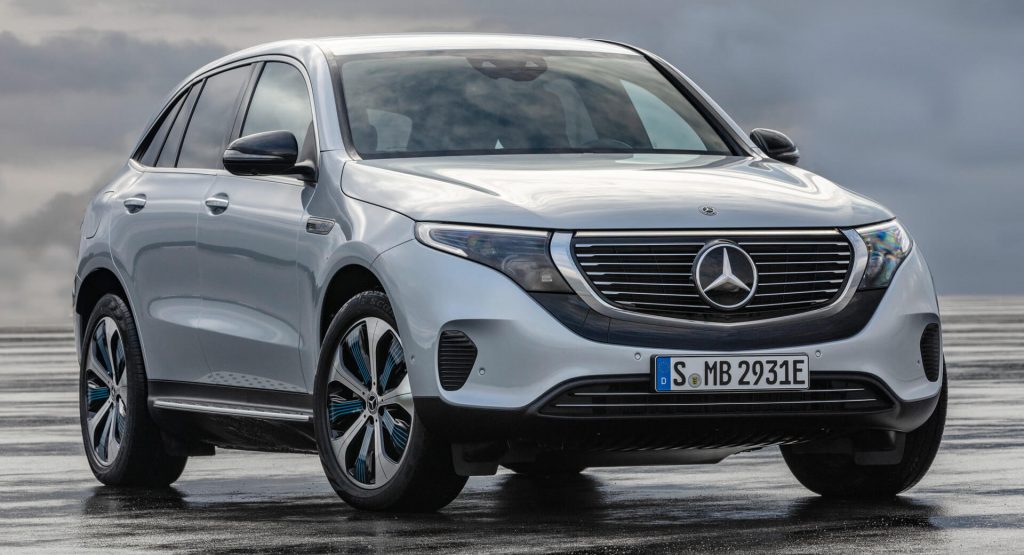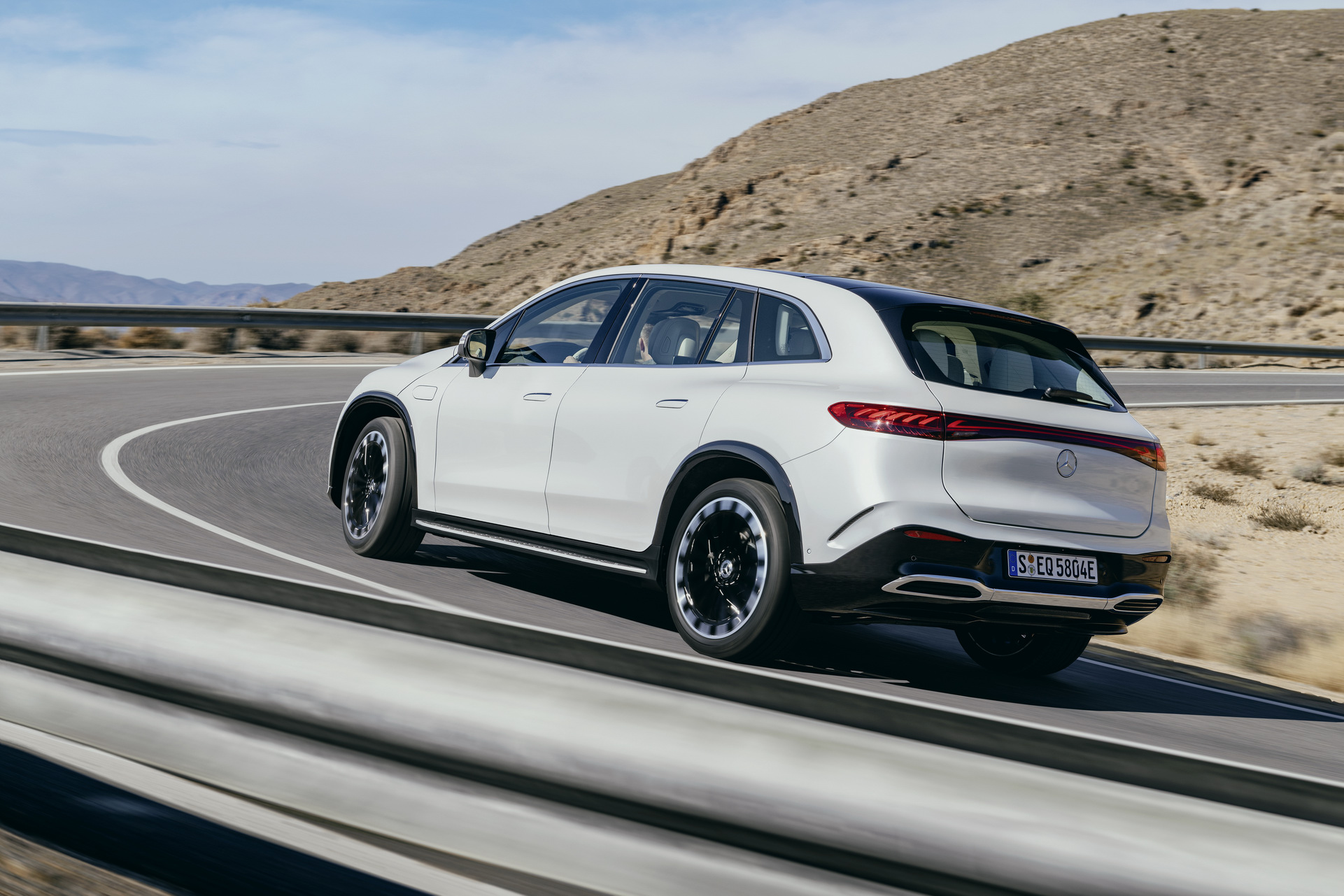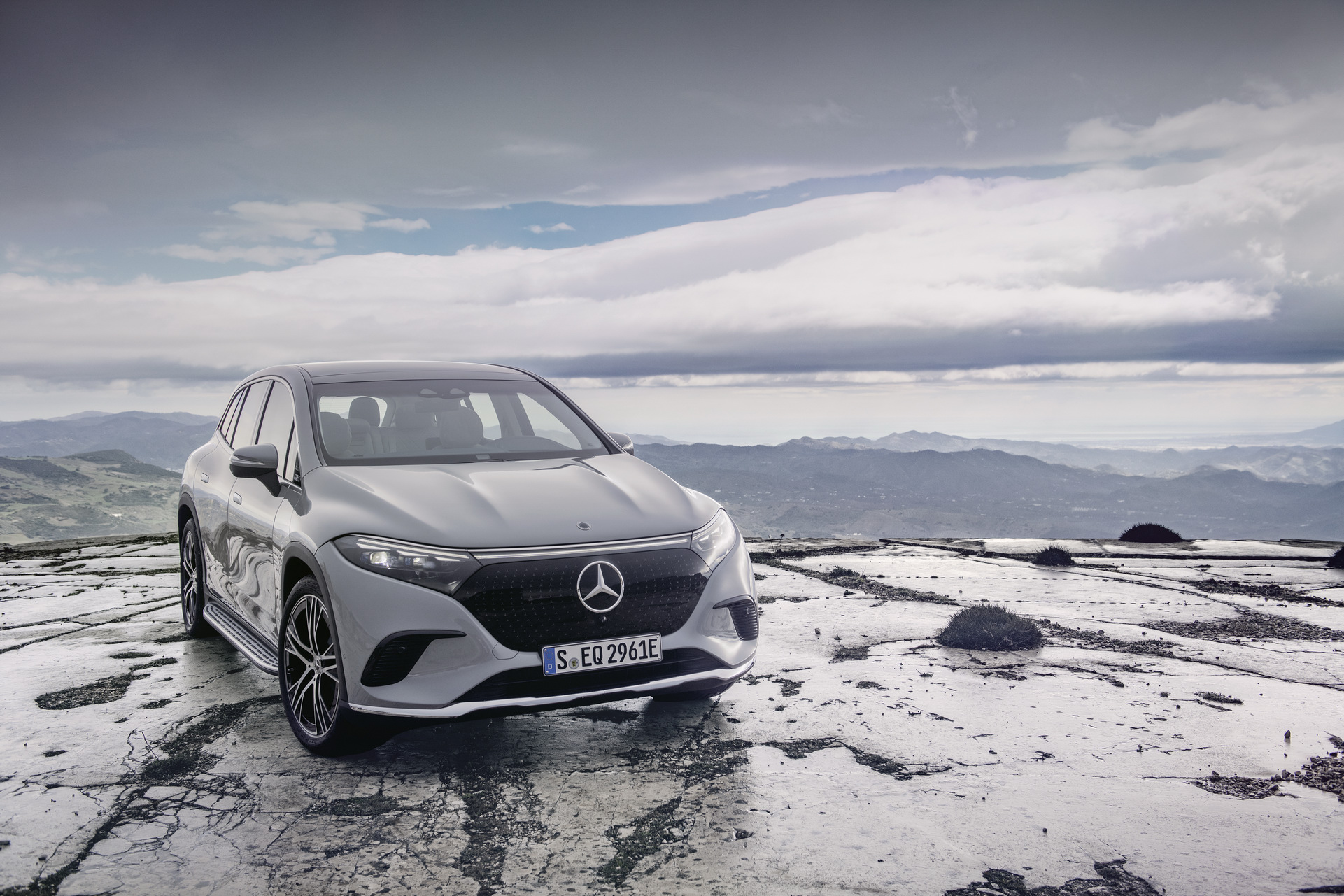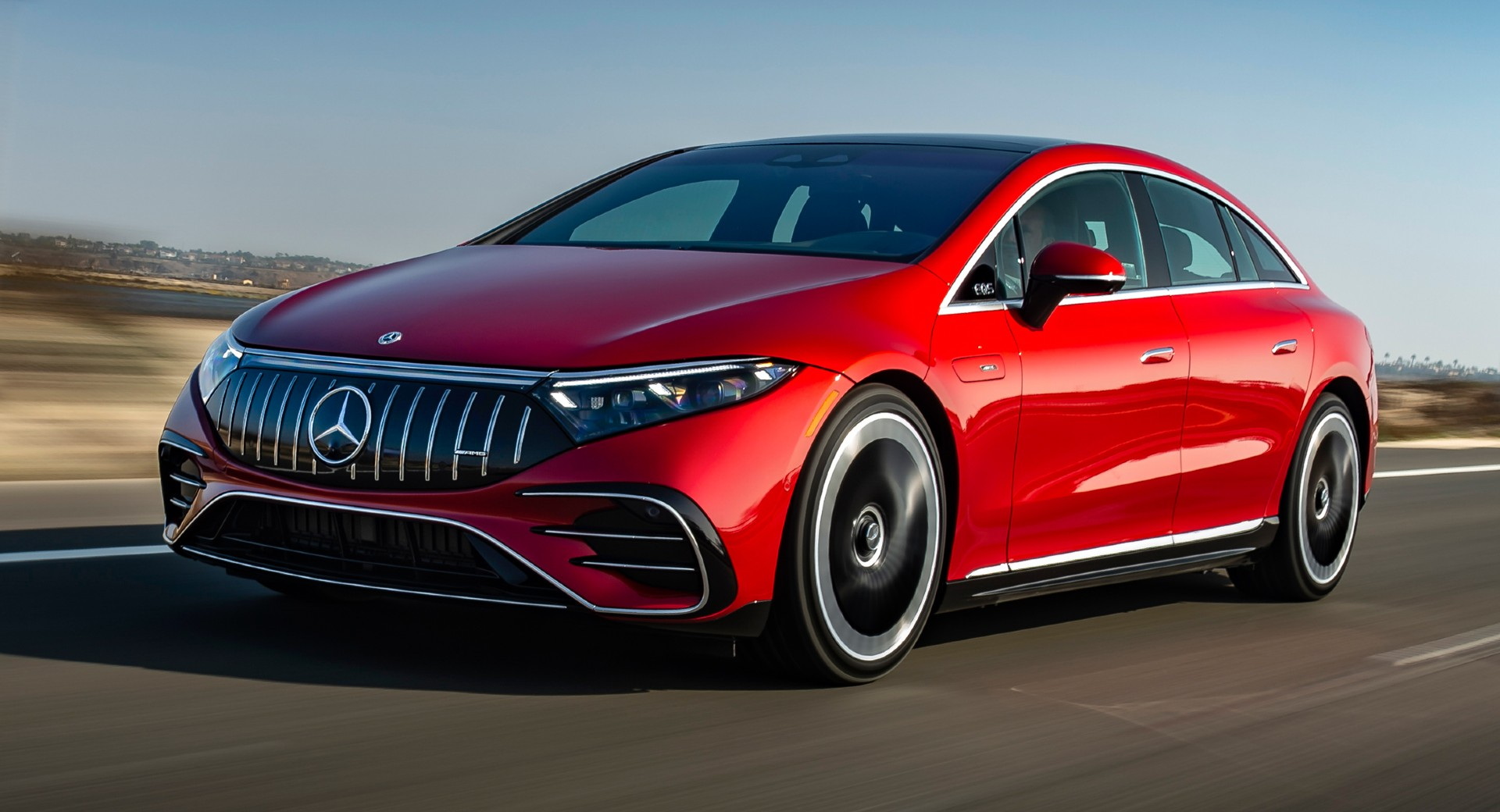Mercedes-Benz is aiming to sell 45,000 electric vehicles in 2023 across the United States as it looks for EVs to account for half of its U.S. sales by 2030.
Speaking at the car manufacturer’s national dealer meeting earlier in the month, company executives said they hope to sell roughly 350,000 vehicles in the U.S. next year. That would be roughly in line with the 357,729 vehicles that it sold locally in 2019, the last year before the coronavirus pandemic sent shockwaves through the industry and impacted sales.
A dealer who attended the event told Auto News that Mercedes U.S. marketing boss Drew Slaven said the carmaker’s national advertising focus for the next two years would focus “almost exclusively” on electric vehicles and technology.
“The purpose of the campaign is to say, ‘Tesla, you had a great run, but now you have to earn it,'” the dealer added.
Read Also: Mercedes Cutting Dealer Numbers, Intends To Move To Direct Sales
More than 300 of the company’s 383 dealerships across the United States have made investments in electric vehicle charging infrastructure and equipment, ensuring that they can sell and service EVs.
An electric vehicle offensive is being planned for the U.S. market. This year, Mercedes will introduce the EQB, the EQE, and the EQS SUV. In 2023, the EQE SUV will also hit the market. EQ models will also serve as the cornerstone of a new marketing push from the carmaker.
While some companies are launching and selling new EVs under direct sales models, Mercedes-Benz USA chief executive Dimitris Psillakis confirmed that the carmaker will not adopt such a strategy in the United States. This comes despite it pursuing a direct sales model in Germany and Europe.
“In the U.S market., we are not over-dealered,” Psillakis said. “We are well structured in terms of the size of the network and locations [of the stores]. So we don’t have any white spots at the moment.”
Psillakis did acknowledge that there may be some dealership mergers and acquisitions across its network, noting that some large dealership groups may buy out smaller independent stores.
“This year, we might see more, either because dealers do not want to take the leap to this higher level, or they don’t want to invest into the EV future,” he said. “And that might lead to one or the other stepping out of the network, or we might see also in some cities voluntary consolidation of operations.”






